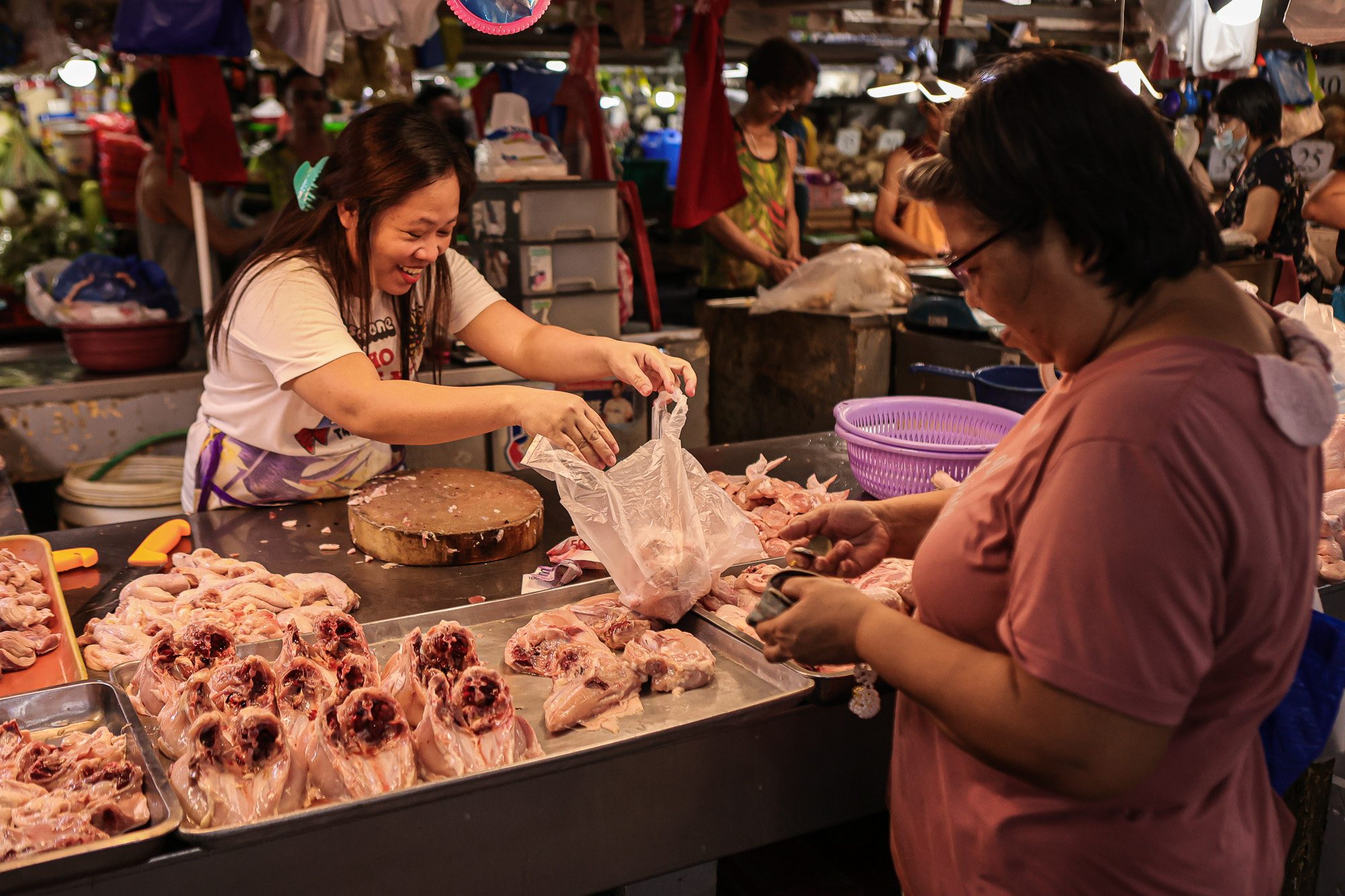SUMMARY
This is AI generated summarization, which may have errors. For context, always refer to the full article.

MANILA, Philippines – Inflation picked up for the fourth straight month in May, rising to 3.9% and nearing the upper band of the government target range, the Philippine Statistics Authority reported on Wednesday, June 5.
The latest figure is slightly higher than the 3.8% reported in April, but lower than the 6.1% posted in May 2023.
The primary drivers of acceleration included housing, water, electricity, gas, and other fuels (from 0.4% in April to 0.9% in May) and transport (from 2.6% to 3.5%).
Rice prices saw a slight deceleration from 23.9% to 23%.
The Bangko Sentral ng Pilipinas earlier said the depreciation of the peso also had an effect on domestic prices.
Year-to-date, average inflation is at 3.5%.
The government is aiming to keep inflation within 2% to 4%.
Regions
Inflation in Metro Manila went up to 3.1% from 2.8%, due to upticks in prices of meat, cereals, and fish. Electricity and housing rentals also saw increases.
Meanwhile, inflation in areas outside Metro Manila remained at 4.1%, driven by increases in cereals, meat, and ready-made food products.
The Bangsamoro Autonomous Region in Muslim Mindanao posted the highest inflation rate at 5.9%. However, this is an improvement from April’s 6.3%.
The Ilocos Region posted the lowest inflation rate at 2.3%.

Government efforts
The National Economic and Development Authority (NEDA) Board has approved a reduction in the rice duty rate from 35% to 15% for rice imports until 2028.
National Statistician Dennis Mapa said that may reduce prices by up to P7 per kilo, based on their calculations. Actual decreases, however, will still depend on retail prices.
NEDA also approved the extension of the reduced tariff rates on corn, pork, and mechanically deboned meat until 2028.
“The NEDA Board approved the new Comprehensive Tariff Program for 2024-2028, a strategic move to ensure access and affordability to essential commodities while balancing the interests of consumers, local producers, and the economy. At the same time, we recognize the need to help our farmers by modernizing our agricultural sector,” NEDA Secretary Arsenio Balisacan said. – Rappler.com
Add a comment
How does this make you feel?
![[EDITORIAL] Apat na taon na lang Ginoong Marcos, ‘di na puwede ang papetiks-petiks](https://www.rappler.com/tachyon/2024/07/animated-bongbong-marcos-2024-sona-day-carousel.jpg?resize=257%2C257&crop=280px%2C0px%2C720px%2C720px)
![[In This Economy] Delulunomics: Kailan magiging upper-middle income country ang Pilipinas?](https://www.rappler.com/tachyon/2024/07/in-this-economy-upper-middle-income-country.jpg?resize=257%2C257&crop=421px%2C0px%2C1080px%2C1080px)

![[EDITORIAL] Marcos Year 2: Hilong-talilong](https://www.rappler.com/tachyon/2024/07/animated-bongbong-marcos-2nd-sona-carousel.jpg?resize=257%2C257&crop=136px%2C0px%2C720px%2C720px)
![[Newspoint] A fighting presence](https://www.rappler.com/tachyon/2024/07/thought-leaders-a-fighting-presence.jpg?resize=257%2C257&crop=441px%2C0px%2C1080px%2C1080px)
There are no comments yet. Add your comment to start the conversation.